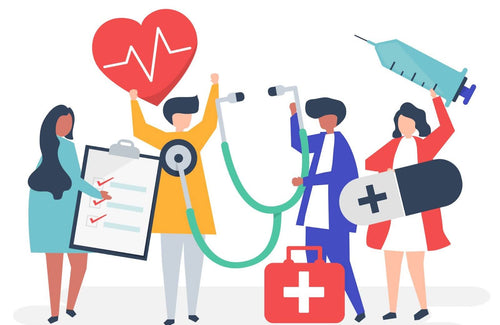"There is a wide path waiting for me out there. This lab also taught me that there is no such thing as a wrong path, everybody needs time to discover what they're interested."
-Science student, University of Guelph
If you are a science major you can find a job in a lab, right? But what if you don’t like the idea of working in a lab? Ah, you can go into research. But isn’t that lab work too? Oh, and research requires statistics – math, ugh!
So what do you do if you love science knowledge, but don’t enjoy lab work, and are not motivated to do research?
Ever heard of a Medical Science Liaison, this is someone who acts as a bridge between pharmaceutical companies and healthcare providers, educating them about new drugs and treatments. They are helping to improve Health Care with their subject matter expertise and ability to communicate and facilitate learning.
How about a Business Analyst, this person analyzes data and trends to inform strategic decisions to related science-based products or services. This job helps make needed health products and services more accessible and equitable to the public.
But how can we uncover job titles we don’t know about and connect them to work that is meaningful to each person?
At the University of Guelph, the College of Biological Sciences has introduced the Challenge mindset to a first-year course called Biological Concepts of Health. This is a course the majority of all first-year science students are required to take.
Embedded in the curriculum is a reflective assignment facilitated during a lab, where students from diverse disciplines, such as biochemistry, nutrition, neuroscience, and zoology each complete the challenge card sort. This activity allows students to explore and understand problems they would like to solve in the world. They then bring their top cards to share, discuss, and exchange ideas within a group. This gives them the opportunity to try on how their science knowledge domains could solve problems that are meaningful to them, and how problems are interdisciplinary.
Through exploring the card “Improving Mental Health” one student was inspired to create an organization that specialized in helping children from New Canadian families adjust to their new home. Having had this experience, the student understood the impact on mental health, of quiet suffering of isolation and loneliness when introduced into a new education system.
Another student noted that by focusing on one thing so early restricted what one could accomplish, the cards created interest to think outside the box, and the cards allowed for the discovery of common interests across disciplines, with many possible pathways.
The Challenge mindset is a first step for students, they can then engage in a self-registration course created for College of Biological Science students, available through University of Guelph’s learning management system. The modules in the course walk students through career exploration and development steps that support a student in articulating what they have to offer through their subject matter expertise, their individual strengths, and how to research problems the world needs help solving, and the organizations doing this work. This allows students to connect with that matters to them, and how their love of science can help them succeed in many roles and industries they have yet to discover.
Hear from more students who participated in the lab:
"There is a wide path waiting for me out there. This lab also taught me that there is no such thing as a wrong path, everybody needs time to discover what they're interested."
"The cards were really interesting, forcing us to think outside of the box and changing the black and white thinking that most of us had adopted."
"Entering the lab, I was a bit nervous I didn't recognize anyone there, however, as the lab progressed, I found myself becoming more and more comfortable with everyone around me. Especially once I was surrounded by like-minded individuals, who could all relate to my goals and passions."
"I learned not to take my career so seriously and to approach with more of an open mind and set goals for what I want to accomplish, not want I want to work as or make money doing."
"The lab completely switched my thinking from me having to be compatible for the job - to the job having to be compatible to me."
What will you do with your science knowledge? How will you build out your contributions to the world of work if knowledge is just one aspect of what you have to offer?



